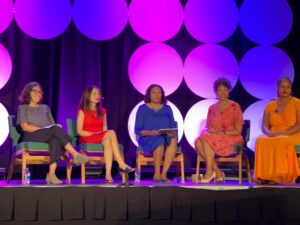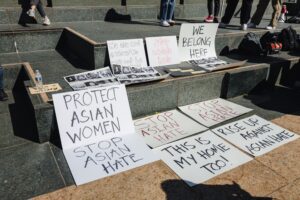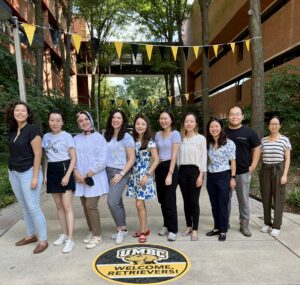Professor Charissa Cheah

“I am a cultural and developmental scientist who uses mixed method approaches to understand how individual characteristics, relationships, socialization agents, and contexts interact to influence child and adolescent development and health. My students and I focus on understanding these processes among families from ethnic/racial/religious minoritized, and immigrant, backgrounds, particularly those of Asian or Middle-eastern or North African (AMENA) heritage, whose lived experiences are poorly represented in the current psychological literature. As our research focuses on marginalized groups and communities, our research questions are collaboratively informed by the needs of the community and how scholarly inquiry can shape programs and policies to improve the well-being of these families. The research from our team contributes to basic, applied, and international scholarship of developmental science that are promotive of successful development in children, youth, and families. Our research is timely, interdisciplinary, and impactful, and has produced empirical knowledge on processes that contribute to the mental health, physical, social cognitive, educational, social, emotional, and relational outcomes, as well as family functioning, in diverse populations of Asian-heritage children within North America and also among families in Asia, Italy, and the Middle-East. My program of research examines these processes at the individual, dyad, family, community, and systems level. My students and use multi-methodological approaches (e.g., surveys, interviews, observations of behaviors, virtual reality, physiological and neurological measurements) to help us understand how different factors such as individual characteristics, relationships, socialization agents, and context interact and contribute to development.

Most recently my research has focused on incorporating anti-racist frameworks to address the recent increase in anti-Asian hate. Beyond the tragic health toll, the COVID-19 pandemic refueled racist tropes about Asian American communities. Racism is a known contributor to health disparities. My research team responded quickly to calls in public health and medicine for research attention to the racism pandemic targeting Asian Americans, which was firmly situated on my long-standing program of research working with Chinese and Korean immigrant families, and Muslim American adolescents. In March 2020, I led a team that was awarded one of the first National Science Foundation grants (RAPID) in response to the COVID-19 outbreak to examine the different types of intensified discrimination that Chinese American families experienced during COVID-19, and the impact on the identities, parenting, and mental health of parents and their children via surveys and interviews. With my collaborator Dr. Shimei Pan in Information Systems, we continue to analyze large scale texts of outbreak-related social media (Twitter) posts to account for how public opinion, anxiety, and discriminatory attitudes evolve across 1.5 years.
In addition, I led the first published study on multiple dimensions of perceived racial discrimination due to COVID-19 that are experienced by Chinese American parents and their children, and associations with their mental health (Cheah et al., 2020) in Pediatrics (IF:7.124), which ranked in the top 5% of all research outputs scored by Altmetric(N=18,758,139) and was in the 99th percentile compared to outputs of the same age. Our findings were also incorporated into the written testimony from the Asian American Psychological Association before the U.S. House of Representatives Judiciary Committee hearing on “Discrimination and Violence Against Asian Americans” on March 18th, 2021. I was also invited by the Society for Research in Child Development to co-author a statement of the evidence research brief on “Addressing Inequities in Education: Considerations for Asian American Children and Youth in the Era of COVID-19.” This research has also captured significant media attention locally (e.g., WBAL TV; WJZ 13 CBS Baltimore; The Baltimore Sun; WYPR 88.1 FM Your NPR News Station) and nationally (e.g., The Washington Post; NPR Science Friday; USA Today). Most significantly, two products from this program of research were cited in the recent U.S. Surgeon General Issues Advisory on Youth Mental Health Crisis, further indicating the impact of my research on shaping policies relevant to children and families.”
Check out Professor Cheah’s 9/15/22 WYPR interview on Racism in Science!!
Other recent and ongoing projects include:
August 2022 Panelist on “The Future of Science on Racism: A Conversation with the Experts at APA”


